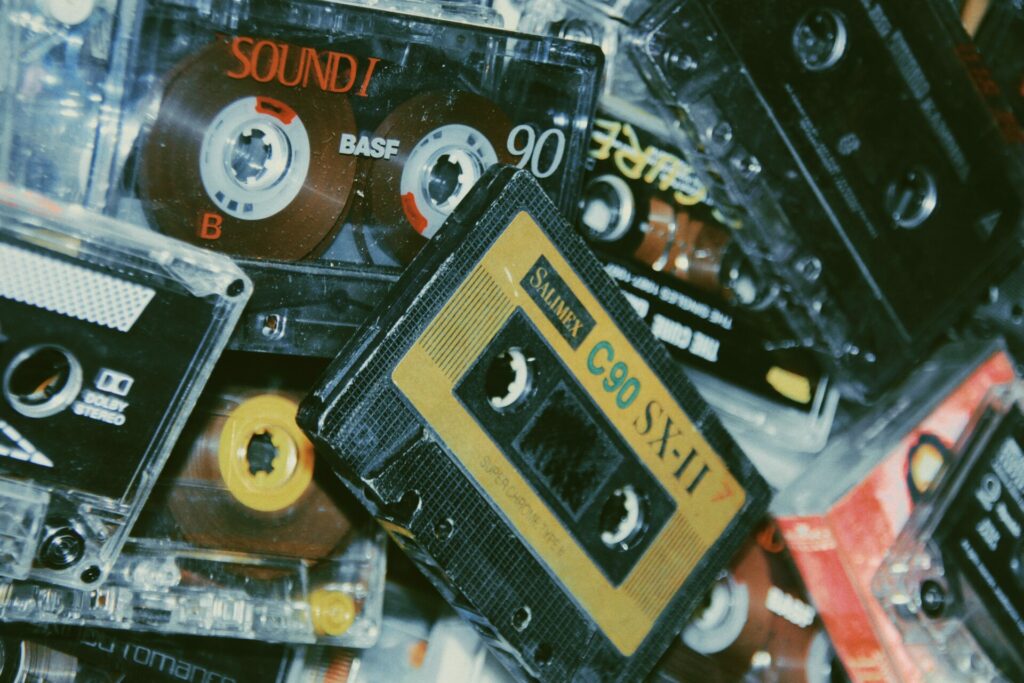After vinyl records, the cassette tape is now making a comeback. The resurgence comes from young people who are embracing another forgotten medium adored by their parents in an apparent rejection of current technology.
The cassette experienced its glory days in the 1980s but after the invention of the compact disc (CD), it gradually lost ground. With the advent of streaming services like Spotify and YouTube, the tape - very easy to use or not - looked doomed to oblivion. However, the cassette is now enjoying a cautious renaissance. For example, popular artists such as Taylor Swift and Harry Styles have released their latest music the old-fashion way, recorded on tape.
Music stores like Chelsea Records in Antwerp offer tapes and stock about fifteen hundred in store. The price varies from €5 to €25. Customers, of course, include those who want to relive the experience of their youth- but many other customers who buy their tapes are in their late teens or early 20s. These young clients have discovered the cassette through their older relatives and have gained an appreciation of its simplicity and sound.
35,000 produced in Belgium this year
The Belgian Recorded Music Association (BRMA) represents the Belgian music industry and confirmed that the cassette is making a mini-comeback, although whiles sales are on the rise, the cassette is still sold in small quantities. The only factory in the Benelux that still makes cassette tapes is located in Lochem in the Netherlands. There they saw production more than double in five years. This year they will produce around 35,000 cassettes. In 2017, there were only 15,000.
According to psychologist Herman Konings, who studies changes in habits, the cassette revival may be down to a growing rejection of digital alternatives. “People are surrounded by screens all day long,” he told De Morgen. “They are looking for alternatives and want to avoid the oversupply of digital technology.”
Streaming services like Spotify have changed our relationship to music. The possibilities are endless. If you don't like a certain song after about ten seconds then you can click on the next one with minimal effort. This can create a certain type of frustration and dissatisfaction. It is a much different experience than having to save your money to buy an album and re-listening to it over and over again, allowing less popular songs on first listen to become familiar and therefore loved.
Craving the tranquility of analogue
This instant gratification has also influenced musical artists who know they have to grab the listener’s attention and hold it within the first 20 seconds of a song. Some now realise that some of the story telling power is lost in this approach and less atmospheric music gets listened too. But the resurgence of cassette tapes seems to be a counter-reaction to the impatience of the streaming experience. In today's rushed digital world, some are starting to crave the tranquillity of a tape recorder.
"What becomes scarce gets value," said Herman Konings. "The younger generations, the original inhabitants of social media, also seem to have a need for this. Especially when they have to deal with stress and mental problems, they resort to analogue."
Related News
- One man’s junk is another’s treasure at the flea market extraordinaire
- How Brussels created a vinyl revival
Whether this will also apply to future generations remains to be seen. "The children who are now about twelve years old already had to deal with tablets in their first year of life," added Konings. "They could swipe before they could talk. Literally. I doubt they'll be able to appreciate analogue mediums later on. Their digital orientation is very strongly developed."
He explained that for Generation Z and millennials, it's a different story as "digital technology only entered their lives when they were already in school. They still have a perhaps subconscious desire for analogue."

